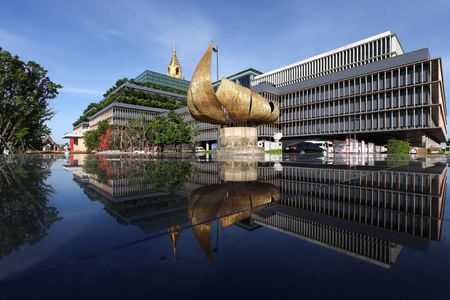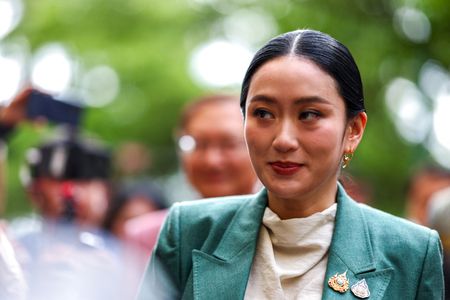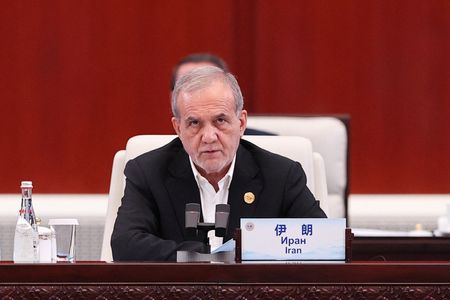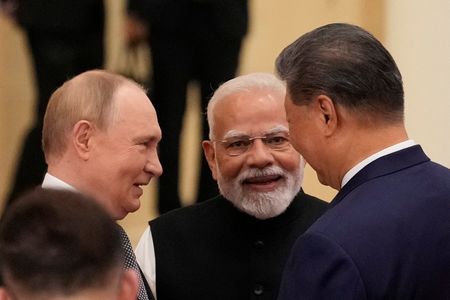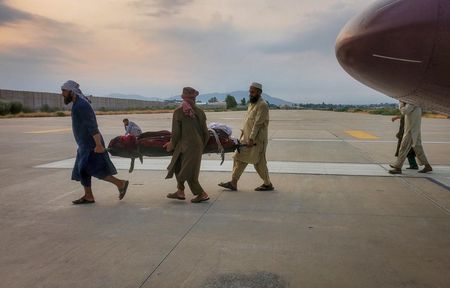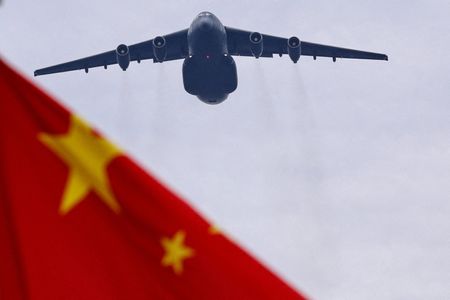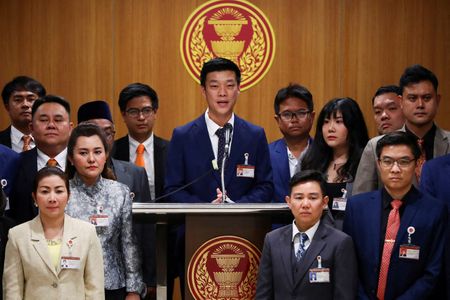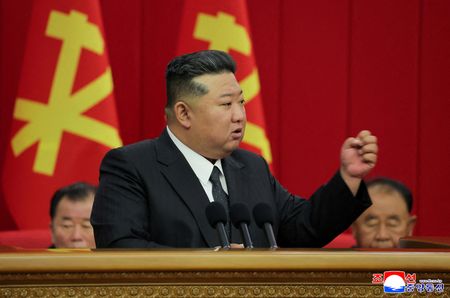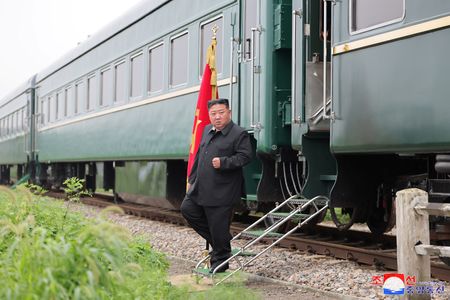By Martin Petty and Panarat Thepgumpanat
BANGKOK (Reuters) -Two rival political camps in Thailand are vying to form the next government following the dismissal by the Constitutional Court of Paetongtarn Shinawatra as prime minister, with no early sign of which side has the upper hand.
WHAT HAPPENED SINCE THE RULING?
Paetongtarn’s August 29 removal for an ethics violation triggered an instant flurry of activity, with her ruling coalition trying to show a united front, while Bhumjaithai – a renegade party that had quit her alliance in June – mounted a bid to form its own government.
Bhumjaithai’s ambitious leader Anutin Charnvirakul, 58, a former deputy premier, embarked on a whistle-stop lobbying spree across Bangkok to try to secure votes, tapping factions of coalition members and most notably the opposition People’s Party, the largest force in parliament.
Anutin stole the spotlight from Paetongtarn, with cameras following his every move. Within a few hours of the court decision, he declared he already had the votes.
Anutin’s offensive has presented a big challenge for Paetongtarn’s ruling Pheu Thai party and her billionaire father and seasoned political dealmaker Thaksin Shinawatra, the driving force behind her government.
Pheu Thai’s popularity has plunged in opinion polls, with disgruntlement and protests over its handling of an armed conflict with Cambodia and a sluggish economy, plus its failure to deliver on its signature 10,000 baht ($308) giveaway to tens of millions of people.
The Shinawatra dynasty’s once dominant populist party has lost some of its bargaining power and it is unclear whether Thaksin has sway with the key power-brokers in Thailand’s conservative establishment.
Both camps are confident they can each form a coalition government, but nothing is guaranteed. Many factors are still in play among the numerous parties, with histories of betrayal, scores to settle and allegiances to shore up or shift, in return for key cabinet portfolios or promises of an early election.
WHAT’S NEEDED TO BECOME PM?
A candidate needs the endorsement of 50 lawmakers before the house can vote. The backing of more than half of the lower house’s current 492 members – or 247 votes – is required to become prime minister.
If the candidate fails, the house must convene again and the process will be repeated for any other candidates nominated, until a prime minister is chosen.
WHO ARE THE PM CANDIDATES?
There are five remaining eligible candidates from those declared prior to the 2023 election, with Bhumjaithai’s Anutin among them.
Following the court’s dismissal of Paetongtarn and a year earlier, her predecessor Srettha Thavisin, Pheu Thai is left with only one candidate, Chaikasem Nitisiri, 77, a former justice minister and attorney general who has kept a low profile, but has said he is ready to step up.
Also eligible are Energy Minister Pirapan Salirathavibhaga, former deputy prime minister Jurin Laksanawisit, and ex-premier Prayuth Chan-ocha, a general who led a 2014 coup against the last Pheu Thai government. Prayuth, 71, is retired from politics, and is currently a royal adviser.
WHAT CAN BREAK THE DEADLOCK?
The opposition People’s Party has emerged as a kingmaker. It controls nearly a third of house seats and its support, which both camps are seeking, could be the game-changer.
People’s Party is a reincarnation of the progressive Move Forward that won the 2023 election on an anti-establishment platform but was blocked from power by lawmakers allied with the royalist military.
People’s Party has said it does not want to join a government but is willing to give its votes to any party that commits to a referendum on amending the constitution and dissolving the house within four months.
If it backs neither Pheu Thai nor Bhumjaithai, political deadlock could prevail, with no time limit in the constitution for when a new premier must be elected.
(Reporting by Martin Petty and Panarat Thepgumpanat; Writing by Martin Petty; Editing by Raju Gopalakrishnan and Michael Perry)

